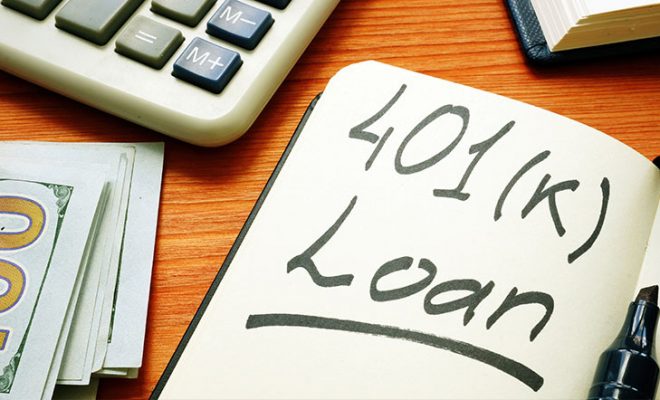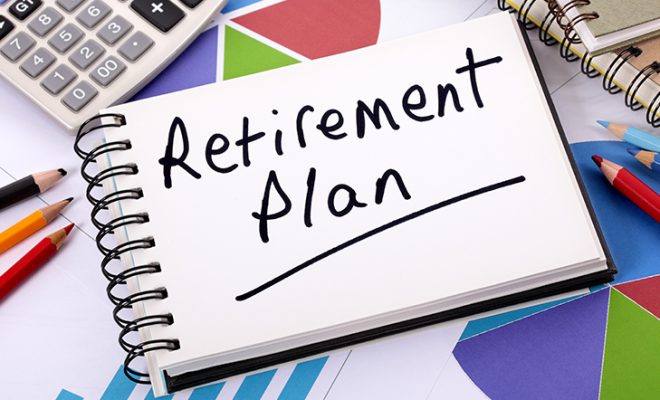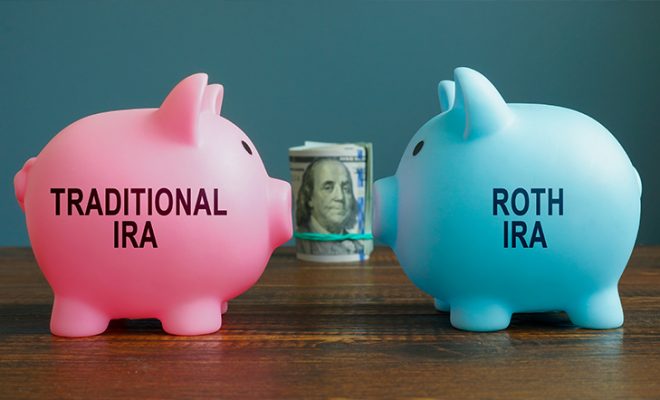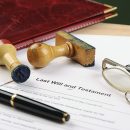7 Tips To Build Wealth For Early Retirement
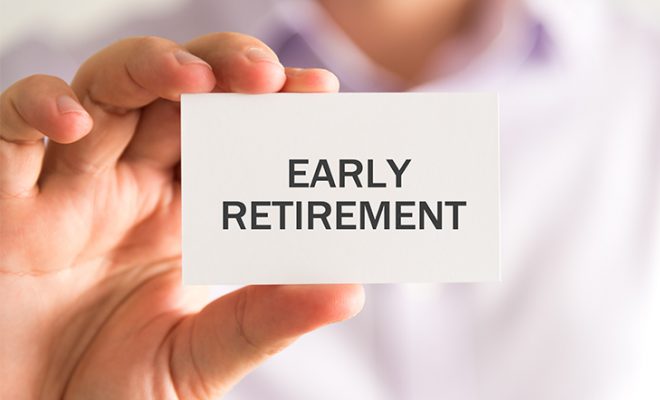
Early retirement is no longer a dream but an achievable reality. With a shift in the basic attitude and mentality of the younger generations, the way people see retirement and work life has drastically changed. There was a time when retirement and old age could be used interchangeably. It was assumed that a retired person has to be at the very least in their 60s. However, more and more people are now opting for an early retirement. People are finding more merit in enjoying and living a relaxed life, rather than spending all of their time slogging in their workplace.
Early retirement has also gained momentum after the FIRE movement. Short for Financial Independence, Retire Early, FIRE is based on the belief that a person can comfortably retire in their 40s and 50s with prudent financial planning. The basic principle behind FIRE is to aggressively save and invest money in high return bearing instruments. FIRE aims to achieve an early retirement even at the cost of a compromised lifestyle in the present. People who wish to retire early generally maximize their savings rate and live very frugal lives until they retire. This can be a hard way of living and may not appeal to everyone. But it can also have its merits. It lets you focus on the more important things in life and live peacefully with your loved ones without worrying about work, deadlines, and earning money. If you need help with learning how you can build a substantial savings corpus to retire early, do reach out to a professional financial advisor.
However, the success of your early retirement largely depends on your retirement investment strategies. It is important to opt for the best investments for retirement and start saving from a young age to enjoy a comfortable retirement. Here’s how you can do this.
How can you plan for early retirement?
If you wish to retire early, the following retirement investment strategies can help:
-
Start planning for an early retirement from a young age:
Early retirement is a tough goal to achieve. Assuming that you retire in your 40s and live till the age of 80, you would have at least 40 years of retirement without any source of income. Hence, you would have to accumulate enough savings that can last you a long time. To do this, you also need to add the impact of inflation. The money that you possess today will lose its value in the future. Hence, you need to account for a retirement corpus that can last you a lifetime and, at the same time, not lose its value in the face of inflation. This can only be achieved with mindful practices and rational retirement investment strategies employed from a young age. Starting early can give you several benefits. Firstly, you have a longer time horizon and are not burdened by the thought of immediate goals and timelines. This can offer you clarity of thought and sufficient time to draft a plan and carry it forward to success. Secondly, a longer time frame offers the power of compounding. The power of compounding multiplies your profits by investing them back into the market. As a result, the final returns are higher. Thirdly, the sooner you start, the more wealth you can create. Every salary, every bonus, and every cash gift can be used optimally without any wastage. When your goal is to retire early, every penny and every second counts. Therefore, time plays the most crucial role here.
-
Save as much as you can:
If you want to retire early, you have to save more than you spend. Finding this balance can be hard as it forces you to live frugally and give up on some of your dreams and desires. However, it is a habit that you would need to imbibe and incorporate into your lifestyle sooner than later. The moment you decide to opt for early retirement, you need to start saving every possible dollar. This does not mean saving 20% to 30 % of your salary in the bank but it goes way beyond. Saving for an early retirement can imply walking instead of taking a cab, eating in over eating out, curbing the urge to shop, switching to thrift stores, and more. The degree and extremity can depend on how much money you are making at present and how much you wish to have at retirement. However, the principles of frugality are the same for everyone. You may have to carry your own lunch to the office, give up your credit cards and avoid all types of debt at all costs, give up socializing with your friends and family, put a pin in your travel plans, and more, all for the sake of a financially secure retirement. The savings target for an early retirement is higher. Hence, the efforts required are also doubled.
-
Find the best way to invest money for retirement:
In order to build a large retirement corpus, you also need to invest your money. Saving alone cannot help you live a financially secure life. Where you invest your savings is what makes a bigger difference. Mutual funds can be one of the safest investments for retirement. They offer two modes of investment – systematic investment plans or SIPs and lump sum investments. You can opt for either of the two. However, the former may be more beneficial and convenient as it allows you to gradually build your wealth over time. Your investment gets broken into several tiny investments that yield returns over time.
An important thing to remember when planning for an early retirement is that you may need to rely on high risk and high reward investment instruments, like equity. These can allow you to build significant wealth that can facilitate an early retirement. If you start investing at an early age, you would be able to ward off some risk. You can consider direct equity, equity mutual funds, etc., along with gold, exchange traded funds, REITs (real estate investment trusts), for a well-diversified portfolio. A well-diversified portfolio with a higher concentration on equity can deliver high returns and, at the same time, balance out risk and generate better returns in the long run.
-
Plan well for health expenses:
Health expenses will likely constitute the biggest part of your retirement expenditure. As you age, your health may decline, and illnesses may catch up. The cost of medicines, long term care, hospitalization, ambulance, surgeries, alternative medicine and therapies, etc., is a primary expense in retirement. So, you need to carefully account for them when you plan for your retirement. A health savings account (HSA) can be one of the best investments for retirement. You can make tax-deductible contributions to your HSA. Your money will grow tax-free, and the qualified withdrawals for medical purposes are not taxed either. However, withdrawals from an HSA are only tax-free and penalty-free after the age of 65 years. If you retire in your 40s or 50s or any time before the age of 65 years, you would have to forgo this option and cover the expenses out of your pocket. Hence, the second best option here can be health insurance. However, be careful to get a comprehensive, all-inclusive plan that covers all types of medical costs, critical illnesses, nurse care, long term care, and more.
Moreover, it is important to buy your own health insurance and not depend on your employer’s plan. No matter how comprehensive a plan your employer offers, you will lose this coverage the moment you retire from your job. Moreover, an employer sponsored plan may not offer features that are uniquely suitable and customized for you. Therefore, make a point to buy your own health insurance. In addition to this, it can also help to buy health insurance at a young age. This way, you can get the best features at an affordable rate. Health insurance premiums rise with age. So, purchasing a plan at a young age is highly recommended.
-
Hire a financial advisor:
Early retirement can require professional guidance and assistance. If you plan to retire early, you may need to employ prudent retirement investment strategies that can help you build wealth at a faster pace. You also need to find the safe investments for retirement that can safeguard your future and that of your family. While you may or may not have the financial acumen to do this, a professional financial advisor can certainly help you achieve your goals. Financial advisors can help you maximize your savings by employing the right strategies. They can help you be debt free and use your money optimally. Financial advisors can also help you create a budget that lets you live comfortably and, at the same time, leave some room for saving for your future. While you may already know some of these things, getting a professional’s opinion can help you put things into action. A financial advisor’s fee can seem like an avoidable expense, especially at a time when you are focusing all of your money and attention towards your retirement. However, instead of looking at the financial advisor as an expense, try to look at them as an investment. When you hire a professional, you invest in them for your future. Their timely guidance and professional help can allow you to fulfill your goals and reach your targets sooner than anticipated. Moreover, there are several types of financial advisors available in the market today. You can hire someone on an hourly basis, commission basis, etc., and manage your expenses as per your needs.
-
Buy a home:
A home can be a great asset to own for early retirees. Real estate offers many benefits and is one of the safest investments for retirement. Firstly, its prices appreciate faster than most other assets, so they offer a good hedge against inflation. Secondly, a home can offer you security and protection. Of all the assets that you can own, a home is the most essential one as it lets you generate further wealth. You can rent it out to earn more money, or give it out on lease. It can offer you financial security in retirement. Moreover, you can also sell it if you face an urgent financial need and require funds. Ticking this goal off your list can take you one step closer to your retirement.
-
Take care of all miscellaneous expenses and losses:
While the bigger expenses rarely go unnoticed, it is the smaller cash outflows that are the most neglected. Retirement can be a long phase. So, you need to account for every expense you can think of. One way to account for such expenses is to buy adequate insurance for everything. Apart from health insurance, you should also purchase homeowners insurance, car insurance, disability insurance, life insurance, and more. Insurance plans can be a great way to safeguard the future against unexpected situations. You can compare different plans and get the one that is the most cost-effective. This helps in reducing costs. Apart from this, you also need to account for unexpected losses and find ways to mitigate risk. Early retirement is a dream for many, but the hard truth is not everyone is able to turn this dream into a reality. More often than not, your family responsibilities, a stalling career, unexpected global and political events, etc., can come in the way of your goals. For instance, you may have a high profile, high paying job today. However, you could lose your job tomorrow, which can severely impact your future plans. This happened to a lot of people during the Covid-19 pandemic. People were forced to dig into their savings and alter their retirement plans for the sake of their present needs. This is why it is always good to have a plan B. Risk management is extremely important in an early retirement plan. This can be done by investing in traditional retirement planning instruments like a 401(k) retirement account or an individual retirement account (IRA). Even though these accounts are not early retirement instruments as they have a minimum age limit of 59.5 years for withdrawals, they can still be a part of your investment portfolio. These retirement accounts can offer stability and growth, along with tax benefits that can be useful later in life. Irrespective of whether you retire early or at the official retirement age, these retirement accounts can offer you financial liquidity and financial safety.
To summarize
Retiring early requires prudence, planning, and preparation. So, the sooner you start the better results you can yield. It is important to understand that retiring early may not be for everyone. It can be extremely hard and requires diligence and meticulousness that may not be possible for all. So, you have to be steadfast and focused to be able to retire early. In addition to this, it is also important to understand that retiring at the official age can be equally rewarding and fulfilling.
Ultimately, you have to decide what works the best for you and accordingly take a call. Irrespective of what you choose, a professional financial advisor can help you achieve your goals and achieve financial freedom in the simplest way possible.
To get in touch with a fiduciary advisor who may provide you with wise financial strategies to build wealth for early retirement, use the free advisor match service. Based on your requirements, the platform scans through registered and qualified advisors to match you with an advisor suited to your needs and goals.




